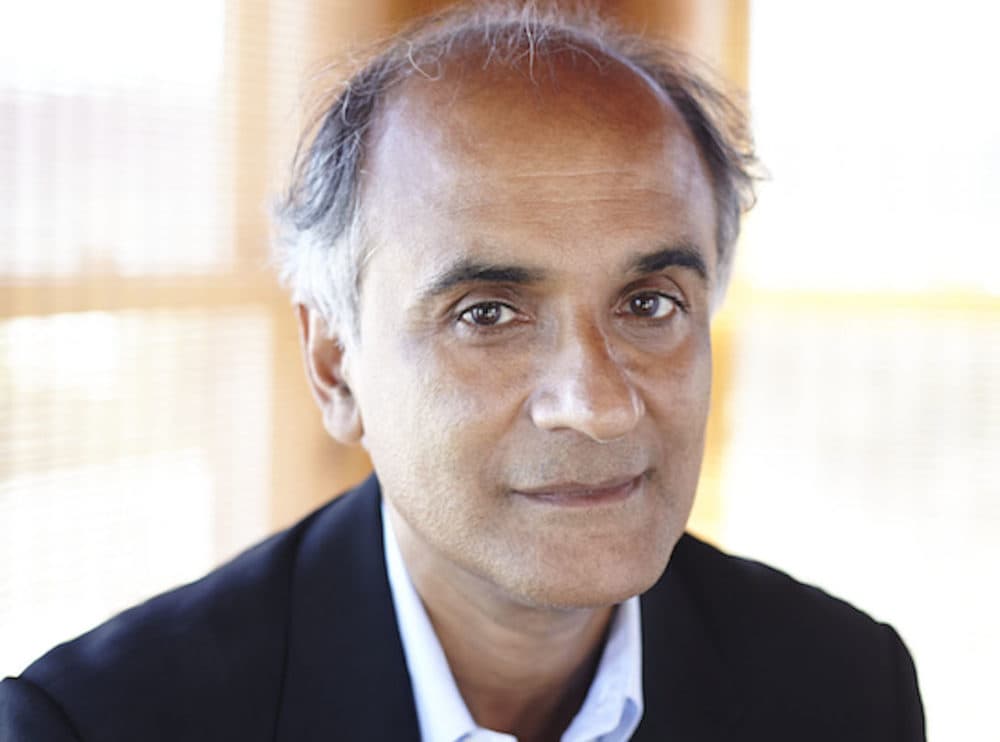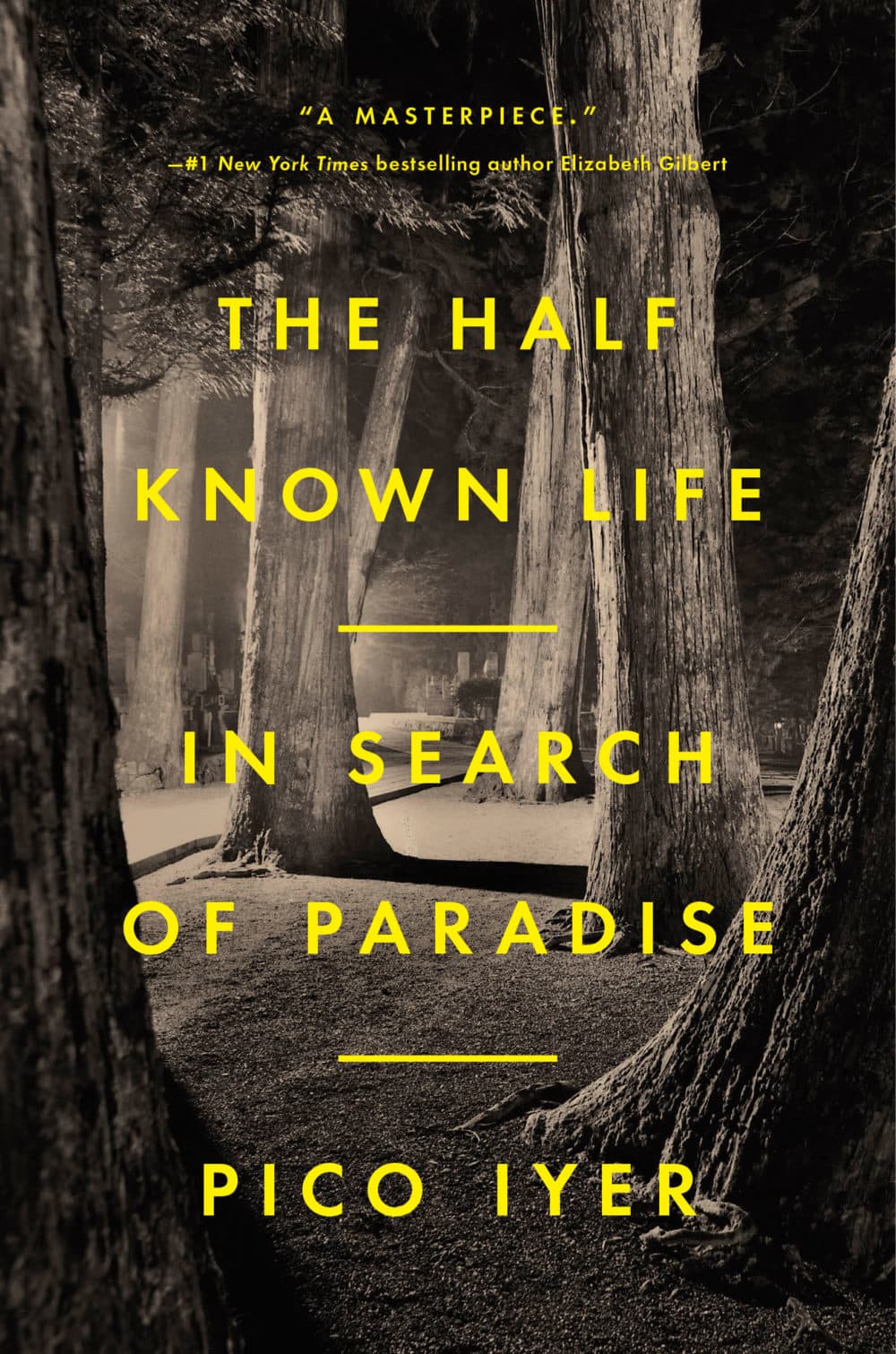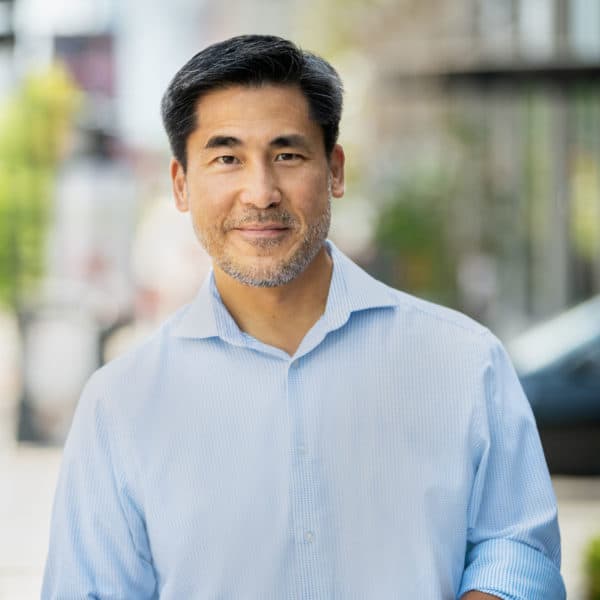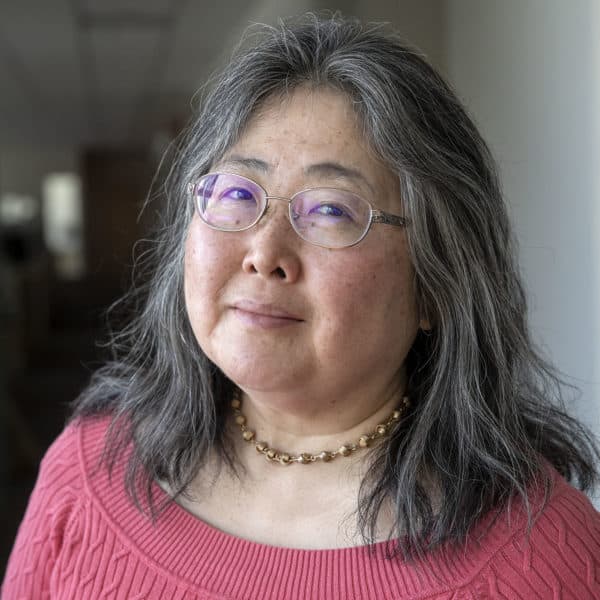Advertisement
Travel writer Pico Iyer reflects on looking for paradise in troubled places
Resume
Editor's note: This segment was rebroadcast on July 4, 2023. Click here for that audio.
Paradise is an idea one pauses to consider every now and again. But is it a place you can actually visit?
Travel writer Pico Iyer found that some of the most spiritual places in the world are often violent places. Iyer, whose list of projects includes biographing the Dalai Lama, has a new book out called "The Half Known Life: In Search of Paradise.”
Iyer’s search for paradise took him to places like Iran, Kashmir, Sri Lanka and Jerusalem — but he defines his journey as more metaphysical.
The idea for the book came to Iyer during the pandemic while he was stuck inside at his mother’s house after she came home from a hospital stay. Looking back on 48 years of travels, he wondered how he could find a better world despite the difficulty life presents.
“Every place, when you step into a travel agency, is presented as paradise or Shangri-La,” he says. “And I've been lucky enough to go to Bali and Tahiti, the Seychelles, Tibet, and many of them are enchanting. But when I get there, I think, well, it may be paradise for me for two weeks, but it probably isn't for the locals.”
And if the destinations were paradise, Iyer says he questions what each place could gain from his visit or if he would serve as “ the serpent in the garden bringing corruption.”
The journey led Iyer to view paradise as a way of seeing things.
“The only paradise I could trust would be one right in the middle of real life and in the face of death,” he says, “which is why … I sought out places of conflict and even war zones.”

Book excerpt: "The Half Known Life: In Search of Paradise"
By Pico Iyer
There were fires, six, seven of them, rising through the winter fog. Groups of men, scarves wrapped around their heads, eyes blazing in the half-light, were gathered, barefoot, around the flames, edging closer. A nearly naked figure with dusty, matted dreadlocks down to his waist was poking at a charred head with a bamboo pole. There was chanting in the distance, a shaking of bells, a furious drumming in the distance, and in the infernal no-light of the New Year dusk, I could make out almost nothing but orange blazes, far off, by the river.
How much of this was I dreaming? How much was I under a "foreign influence," if only of jet lag and displacement? Figures came towards me out of the mist, smeared in ash from head to toe, bearing the three-pronged trident of the holy city's patron, Shiva, "Ender of Time." As I passed into the little alleyways behind the flames, I arrived at a warren of tiny streets, in which a shrunken candle burned in the dark of a bare earth cavern. A boy was seated on the ground, behind a pair of scales. Cows were padding ceaselessly down the clogged, dung-splattered lane. Every now and then, another group of chanters surged past, a dead body under a golden shroud on the bamboo stretcher that they carried towards the river. I pressed myself against a wall, and a whisper of mortality brushed me.
I fumbled my way through the pitch-black, in the labyrinth of narrow passageways, and another corpse came by, two women in their finest silk saris sludging barefoot through soft mud towards the holy waters. I followed intuition in and out of the dark streets, past little candles flickering in shrines and openings where men were whispering sacred syllables. Then, turning a corner, I came to an intersection and three men stood before me, guns protruding from behind their backs.
It was strange to think that, just seventy-two hours earlier, I had been on the far side of the world, marking a quiet New Year's Day in the sun. Now there were goats with auspicious red marks on their foreheads trotting around, and embers burning, and oil-lamps drifting across the river in the fog. Along the walls were painted orange faces, laughing monkey gods, sacred looming phalluses. Shops on every side were selling sandalwood paste, and clarified butter oil for dead bodies, tiny clay urns for ashes.
The city of death had once been known as “Kashi,” or “City of Light.” The English writer Richard Lannoy, who all but lost his soul to Varanasi, had called it a “City of Darkness and Dream.” In a long and often hallucinatory book, he had quoted the Chief Superintendant of Police of what once was called Benares describing “the abduction of women from temples, prostitution in the name of God, the prevalence of theft on the pilgrim scene, the cannibalistic customs of the Aghoris {or extreme renunciates}, the drunken orgies of bogus tantriks.”
Yet what startled me most as I began to walk its streets was that the city of extinction was, without question, a city of joy. The people hurrying past me towards the burning pyres, bearing dead bodies towards the sacred river, were raising their voices in praise, and in a great, overwhelming cry of thanks.
Excerpted from The Half Known Life by Pico Iyer. Copyright © 2023 by Pico Iyer. All rights reserved. No part of this excerpt may be reproduced or reprinted without permission in writing from the publisher.
This segment aired on January 18, 2023.

